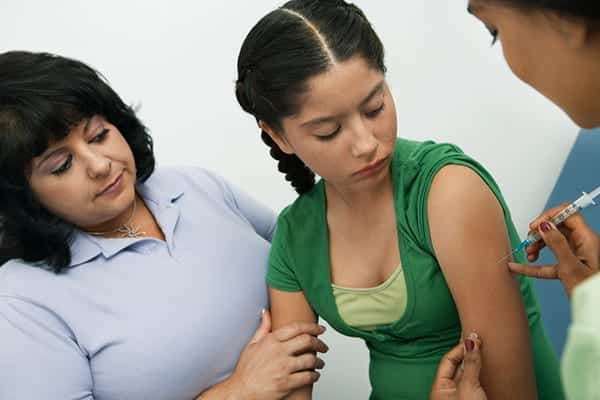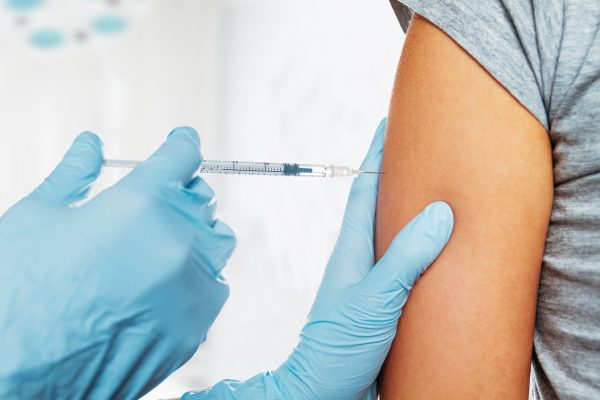We Specialize In Vaccine Research
The Vaccine Division of QPS specializes in all types of vaccine research
As a result of today’s increased threat of bioterrorism, as well as a growing awareness of the value of preventative healthcare, the vaccine field has recently developed into one of QPS’s largest specialty areas.
Our large volunteer databases, former study subject databases, in-house marketing agencies, target large populations to help QPS maintain its status as a top enroller. To ensure full regulatory compliance, we use a central institutional review boards (IRB). Moreover, our full-time quality assurance team, regulatory department, rigorous standard operating procedures, and experienced staff of study coordinators consistently provide quality results.
The Process Of Vaccine Development
The process of developing and testing vaccines is similar to that of other drugs.
First, the vaccine developers submit an Investigational New Drug application to the FDA. This application will describe the vaccine’s purpose, the manufacturing process, and quality control testing and include evidence for immunogenicity in animal testing and proposed clinical protocols for human testing.
Then, clinical development of the vaccine proceeds in three phases:
Phase I trials are safety and immunogenicity studies performed on a small number of closely monitored human subjects.
Phase II trials are dose-ranging studies performed on hundreds of participants.
Phase III trials, which are typically run on thousands of test subjects, provide critical documentation of effectiveness and the safety data required for licensing.
Next, the developers submit a Biologics Licensing Application to the reviewing team at the FDA, which is composed of biostatisticians, chemists, microbiologists, and medical officers. This application should contain all of the information needed to make a risk/benefit assessment. After reviewing the Biologics Licensing Application, the team will either recommend the vaccine for approval or deny the application.
Due to the meticulous testing and rigorous approval protocols involved, developers may work for years to bring a vaccine from the lab to market.
QPS Vaccine Trial Experience Includes
- Anthrax
- Diphtheria/Pertussis/Tetanus
- Ebola
- Herpes Zoster (shingles)
- Human Papillomavirus (HPV)
- Japanese Encephalitis
- Staphylococcus
- Meningitis
- Rabies
- Pandemic Flu (Avian Influenza)
- Plauge
- Seasonal Flu (Influenza)
- Small Pox
- Zika


Peripheral Blood Mononuclear Cells
Peripheral Blood Mononuclear Cells (PBMCs) play a significant role in the study and development of vaccines. PBMCs are a diverse mixture of blood cells, including lymphocytes (T cells, B cells, and natural killer cells) and monocytes, which are crucial components of the immune system. Here’s how PBMCs are involved in vaccines:
Immune Response Monitoring:
PBMCs are often used to monitor the immune response to vaccines. Researchers collect PBMCs from blood samples before and after vaccination to assess how the immune system reacts. This helps in understanding the efficacy of the vaccine by measuring specific immune responses, such as the production of antibodies by B cells and the activation of T cells.
Vaccine Development and Testing:
During the development of vaccines, PBMCs can be used in vitro (in the lab) to test how immune cells respond to vaccine candidates. This preclinical testing helps identify promising vaccine formulations before they are tested in humans.
Studying Immune Mechanisms:
PBMCs allow researchers to study the mechanisms of immune activation and memory formation in response to vaccines. By analyzing how different subsets of PBMCs (e.g., T helper cells, cytotoxic T cells, regulatory T cells) react to vaccine antigens, scientists can gain insights into the protective mechanisms elicited by vaccines.
Personalized Medicine:
PBMCs can be used to study individual variations in immune responses to vaccines. This helps in understanding why some individuals respond better to certain vaccines than others and can lead to the development of personalized vaccination strategies.
Adjuvant Evaluation:
Adjuvants are substances added to vaccines to enhance the immune response. PBMCs are used to test the effects of different adjuvants on immune cell activation and cytokine production, aiding in the design of more effective vaccines.
Vaccine Safety:
PBMCs are also used to evaluate the safety of vaccines by assessing potential adverse immune reactions. This is crucial in ensuring that vaccines do not trigger harmful immune responses.
For more information on the QPS PBMC labs and testing capabilities, please visit our page dedicated to QPS PBMC support services, Peripheral Blood Mononuclear Cells.
Thinking Ahead to Future Pandemics
While it may seem early to be thinking about the next pandemic, and it’s difficult to acknowledge that COVID-19 won’t be the last global health crisis, the best way to protect against future outbreaks is to establish development and manufacturing platforms that can be adapted to new pathogens. The scientific community may have achieved a COVID-19 vaccine sooner if SARS or MERS had been more significant threats, and funding had allowed research to continue between pandemics.
Going forward, scientists and infectious disease specialists hope to begin designing vaccines before viruses are even known to infect humans. QPS is able to support this vaccine research from early preclinical development, through bioanalysis and into clinical trials and regulatory submission.
Links to Relevant Documents
- A Flexible Approach to Oncology Clinical Trials
- Respiratory Clinical Services
- Vaccines Clinical Services
- Alzheimer's Disease Clinical Trials
- Alzheimer’s Disease Clinical Trials – Dutch
- Vaccine Clinical Trial Experience
- Female Healthcare
- Pain Models
- Influenza Vaccine Case Study
- Transdermal Delivery Systems
- Clinical Trial Complexity in a Pandemic Case Study






